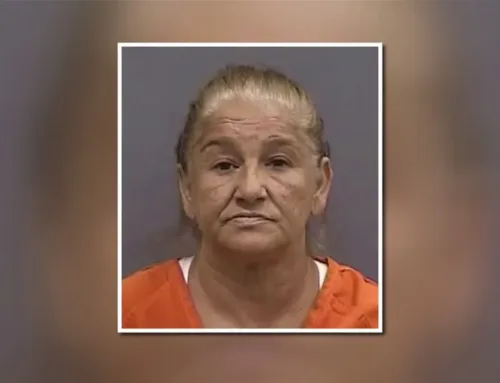May 9, 2021
-CTV
OTTAWA — While the government continues to insist that individuals’ online audio or video content won’t be subject to federal regulations under Bill C-10, the Canadian Radio-television and telecommunications Commission (CRTC) could impose regulations on accounts that have a large enough following or are making enough money off of it, according to Heritage Minister Steven Guilbeault.
In an interview on CTV’s Question Period with Evan Solomon, the minister said that while the CRTC isn’t going to be regulating user-generated content, they may be able to have certain regulating powers related to discoverability of online content, if an account’s channel has “millions of viewers,” are “generating a lot of money on social media,” and are “acting like broadcasters.”
“What we want to do, this law should apply to people who are broadcasters, or act like broadcasters. So if you have a YouTube channel with millions of viewers, and you’re deriving revenues from that, then at some point the CRTC will be asked to put a threshold. But we’re talking about broadcasters here, we’re not talking about everyday citizens posting stuff on their YouTube channel,” Guilbeault said.
Because this is not “the vast majority of people” as Guilbeault put, the government continues to say the bill won’t touch individual users, though there are accounts with sizeable followings started by individuals.
Asked repeatedly what the threshold would be for CRTC scrutiny, whether a certain number of millions of followers, or a certain amount of advertising revenue, the minister said it’s something the government will ask the CRTC to determine, but that it would be entities that have a “material impact on the Canadian economy.”
These comments come amid ongoing backlash over what some internet and free speech experts have warned is a potential Charter of Rights and Freedoms overreach with the federal government’s Bill C-10.
The outrage was sparked after the Liberals removed an exemption protecting for individuals’ online content from its proposed Broadcasting Act changes that were aimed at ensuring major social media platforms and streaming services such as Netflix, Instagram, Tik Tok, YouTube, and Spotify pay their fair share towards Canadian artists and are held to similar standards as regular broadcasters.
Previously, he’s said that the focus is to be on “professional” online audio or video such as television, movies, music, or podcasts, though the scope of what content the Liberals are intending to target as “professional” audio and video posts have not been explicitly defined.
“This is why we have a body of experts like the CRTC to make those determinations, it’s not up to politicians to decide that,” said the minister. “Governments come and go, but these experts are there and they will be making this this determination, after having consultations with organizations of different opinions on the subject matter.”
REGULATION OVER DISCOVERABILITY
Last week, looking to calm some concerns about the countless cat videos or viral dance numbers Canadians upload to these social media and streaming services daily, the government outlined a new amendment to the bill that while it doesn’t entirely restore the exemptions for Canadians’ posts, seeks to clarify the scope of the legislation.
The change outlines limits to the powers the CRTC would have when it comes to regulating online social media posts from users who are also not the providers of online sites, while maintaining that the regulator would still have powers related to the discoverability of Canadian content online.
Speaking to the discoverability amendment, Guilbeault said that though the changes that have been made—and continue to be made in the ongoing committee clause-by-clause process—won’t make it so that the CRTC can dictate what people can or can’t post or see online, but they could prompt these platforms to suggest more Canadian content.
“The discoverability is really for the platforms, so for YouTube, for TikTok, for Spotify. What we want them to do is to invite Canadians to see more, to watch more Canadian artists,” he said.
“When you and I go on YouTube, we can decide to watch whatever we want, and YouTube makes a lot of suggestions… So all that we’re asking these companies to do is, is to make it easily more accessible for Canadians to discover our Canadian artists, our Indigenous artists or Francophone artists,” but that people will be free to watch what they want.
Guilbeault said that despite the concerns raised, he thinks there is still “a lot of support” for Bill C-10 among people who don’t think it gives the CRTC overreaching powers.
Though, as Michael Geist, a University of Ottawa law professor and the Canada Research Chair in internet and e-commerce law said in an interview on CTV News Channel’s Power Play on Friday, the Liberals are still allowing the CRTC “some real powers” to influence what people see on their social media feeds.
“I think they need clear thresholds so that this overbroad regulation that touches on services around the world, even [if] they may not have significant presence in Canada, needs to be scaled back,” he said, suggesting it may be time to go back to the drawing board or the government could be facing years of legal and regulatory challenges.
“It’s been a fundamentally flawed piece of legislation from the outset, made worse by the decisions that the government has made, and made even worse… by their inconsistency and almost incoherence in trying to explain [it],” said Geist.




